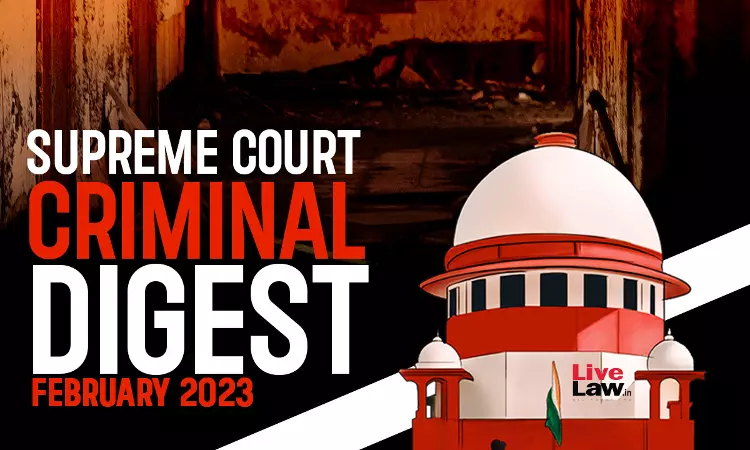- Home
- /
- Top Stories
- /
- Supreme Court Criminal Digest...
Supreme Court Criminal Digest February 2023
LIVELAW NEWS NETWORK
7 March 2023 11:34 AM IST
Code of Criminal Procedure 1973; Section 432 – Remission - In determining the entitlement of a convict for premature release, the policy of the State Government on the date of the conviction would have to be the determinative factor. However, if the policy which was prevalent on the date of the conviction is subsequently liberalised to provide more beneficial terms, those should also be...
Next Story



